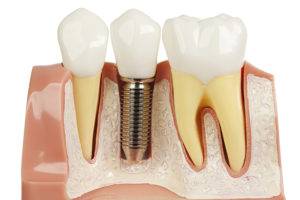Embarking on dental implant surgery is a momentous stride towards revitalizing your smile and attaining optimal oral health. Nonetheless, meticulous post-operative care is imperative to ensure effective healing and the enduring triumph of your dental implants.

In this blog, we will delve into eleven indispensable aspects that necessitate attention after dental implant surgery, fostering healing, alleviating discomfort, and optimizing the durability of your newly acquired dental implants.
#1 Follow Your Dentist’s Instructions:
Your dentist will furnish you with customized post-operative instructions that cater to your specific circumstances. It is of utmost importance to diligently adhere to these guidelines, encompassing prescribed medications, oral hygiene practices, and dietary restrictions. By faithfully following your dentist’s instructions, you will facilitate proper healing and minimize the likelihood of complications.
#2 Control Bleeding:
Some bleeding after dental implant surgery is normal. To control bleeding, gently bite down on a clean gauze pad placed over the surgical area. Change the gauze as instructed, and avoid vigorous rinsing or spitting to prevent dislodging the blood clot. If excessive bleeding persists, contact your dentist promptly.
#3 Manage Discomfort:
Mild to moderate discomfort is common after dental implant surgery. Your dentist may prescribe pain medication to manage pain effectively. Take the medication as directed and apply ice packs to the outside of your mouth intermittently to reduce swelling. If discomfort persists or worsens, consult your dentist.
#4 Maintain Oral Hygiene:
Keeping the surgical area clean is crucial for proper healing. Gently brush your teeth and tongue with a soft-bristle toothbrush, being cautious around the surgical site. Rinse your mouth with a saltwater solution recommended by your dentist to minimize the risk of infection. Avoid using mouthwashes containing alcohol during the initial healing period.
#5 Be Mindful of Your Diet:
In the days following dental implant surgery, stick to a soft and bland diet. Opt for nutritious foods that are easy to chew, such as mashed potatoes, soups, yogurt, and smoothies. Avoid hot and spicy foods, crunchy snacks, and hard-to-chew items, as they can irritate the surgical area and hinder the healing process.
#6 Take Rest:
Allow your body to rest and recover after dental implant surgery. Engage in light activities and avoid strenuous exercises for a few days. Resting will facilitate healing and minimize the risk of complications.
#7 Control Swelling:
Post-surgical swelling is a common occurrence following dental implant surgery. To alleviate swelling, gently place ice packs on the outside of your mouth for 15-20 minutes at a time. It is important to safeguard your skin by placing a cloth or towel between the ice pack and your skin to prevent potential ice burns.
#8 Avoid Smoking and Alcohol:
Engaging in smoking and alcohol consumption can hinder the healing process and elevate the chances of complications. It is essential to refrain from smoking and alcohol intake for the duration advised by your dentist.
#9 Protect the Surgical Area:
Be mindful of protecting the surgical area during the healing process. Avoid touching the area with your fingers or tongue, as it can introduce bacteria and hinder healing. Be cautious while eating and drinking to prevent any accidental trauma to the surgical site.
#10 Attend Follow-up Appointments:
Consistent follow-up appointments with your dentist are vital in overseeing the advancement of your dental implant surgery. These visits enable your dentist to assess the healing process, implement any required modifications, and address any queries or apprehensions you may have. Ensure attendance to all scheduled appointments and maintain open communication with your dental team.
#11 Maintain Good Overall Oral Health:
Even after the initial healing period, it is vital to maintain excellent oral hygiene and continue regular dental visits. Brush and floss your teeth daily, and visit your dentist for professional cleanings and check-ups. This routine care will help ensure the long-term success of your dental implants and maintain optimal oral health.
Recommended post: Decoding Dental Implants: A Guide To 31 Key Terminologies

